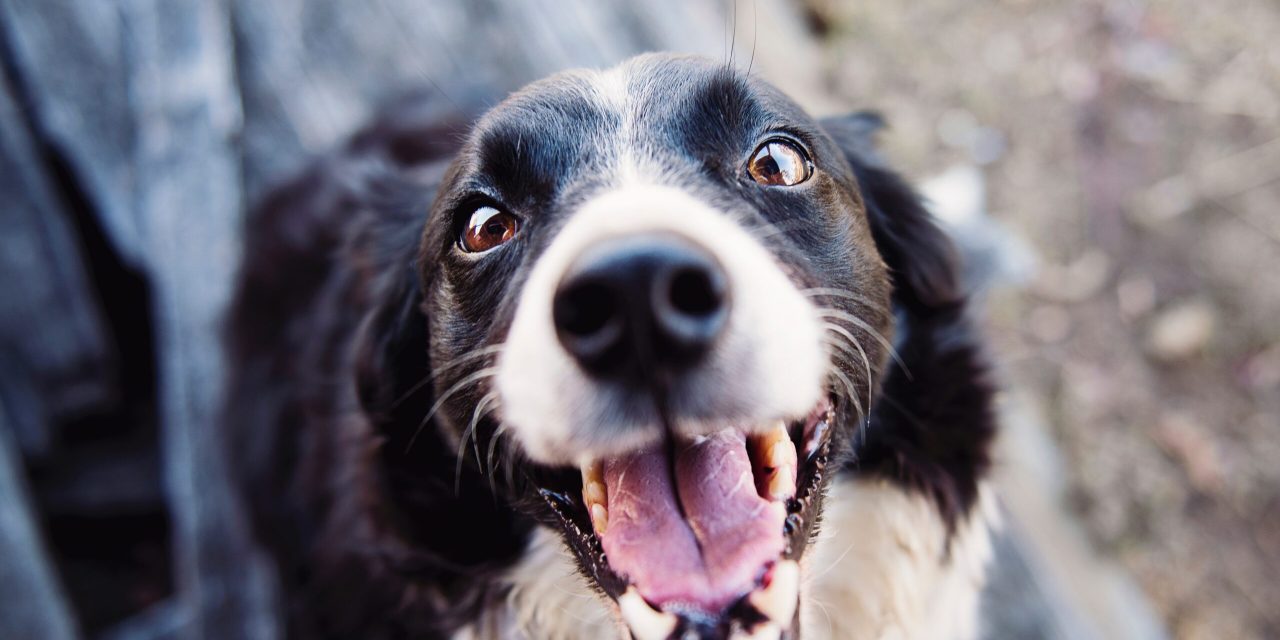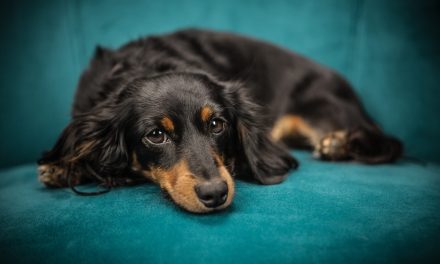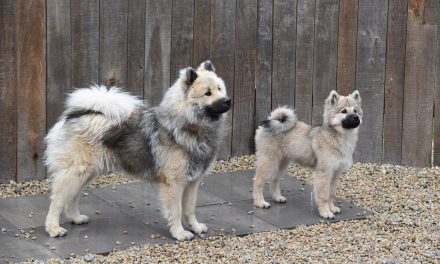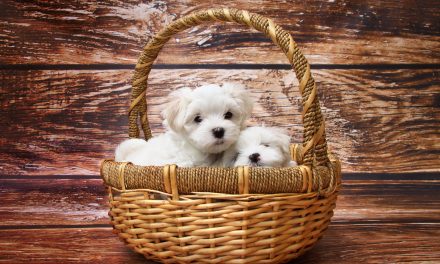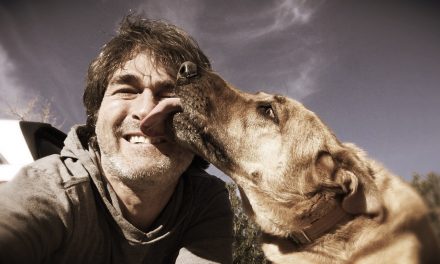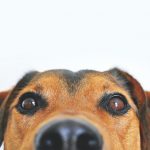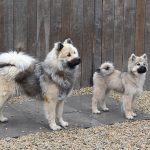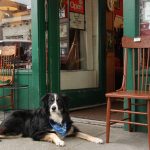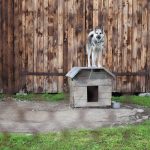- Home
- /
- Blog posts
- /
- My Dog Ate Human...
As disgusting as it is if your dog eats human poop, it probably isn’t going to cause them too much trouble, they should be able to digest it just like if they ate their regular food. With anything, you might just be the one person whose dog gets sick.
Human poop can contain traces of ingested things; things like drugs, for example, which can be very harmful to your dog’s health. There is also a bacteria present in human poop that can give your dog stomach pain, cause vomiting and decreased appetite.
What to expect from our article
Why do dogs eat poop?
There are many reasons dogs eat poop, but the main one is that the dog is suffering from a nutrient deficiency.
Domesticated dogs eat commercial dog food, and let’s face it many commercial dog food brands are just garbage labelled as dog food. A dog in the wild wouldn’t pop down to pets at home and purchase a bag of kibble, and some tins labelled as dog food, they hunt and eat what they kill, which could be any type of animal from mice to birds and rabbits.
Dogs in the wild eat nose to tail, which means they eat everything (except fur and feathers etc.), bones and organ meat included. The body uses up everything they eat with very little waste, whereas commercial dog food is packed full of fillers that wild dogs would never eat.
Many fillers in dog food are products that cannot be absorbed or digested, so they are eliminated in the dog’s poop, which means lots of the good stuff goes with it like vitamins, minerals and digestive enzymes.
Digestive enzymes allow the breakdown of food so your dog can absorb the correct nutrition. Some dogs aren’t able to produce the enzyme themselves, so they get it from their prey, but if they eat commercial dog food, they won’t get any, which is why they eat poop.
Parasites are another reason your dog will eat poop, and this is because parasites can strip your dog of vital nutrients, which is why it is important to worm them regularly.
How to clean my dog’s mouth after they have eaten poop
A puppy must be taught that cleaning the mouth and teeth is ok, and it won’t hurt them. Integrate it into your regular grooming routine so that your puppy accepts you touching their mouth, tongue, and brushing their teeth.
Dogs don’t particularly like you putting things in their mouth but if it is done early in life and regularly, it will become normal to them and make it easier if your dog does indeed eat poop one day.
Start by wiping away any poop you can see on the outside of your dog’s mouth with a facecloth and some warm water. If they allow you to inspect the inside of the mouth, you can brush the dog’s teeth using a soft-bristled toothbrush and a little doggy toothpaste.
If you have a dog that isn’t keen on you poking around in their mouth, you can give them some food and water. When your dog eats his food, he will start to produce saliva; saliva is a natural cleaning agent. You can also add some coconut oil to the food if you like, coconut oil is a natural antibacterial which will clean his mouth.
You can finish off by giving them a dental chew; this will also produce saliva helping to clean his mouth further, you can even get minty ones which will help to freshen his breath.
While you can safely use a human toothbrush to clean your dog’s teeth, It is essential you only use toothpaste that is made specifically for dogs; human toothpaste contains ingredients that are not suitable for dogs.
Will my dog be OK after eating chocolate?
Chocolate is poisonous to dogs because it contains a chemical called theobromine. Chocolate also contains caffeine. Theobromine is similar to caffeine, and both of these chemicals are used medicinally as a diuretic, heart stimulant, blood vessel dilator, and also as a muscle relaxant.
Dogs cannot metabolise theobromine and caffeine as efficiently as humans can, making them a lot more sensitive to both substances. Chocolate is rarely fatal to dogs, but eating chocolate can result in significant side effects.
Which chocolate has the most theobromine
Not all chocolate contains the same amount of theobromine. Regular milk chocolate has the lowest amount at around 44-58 mg per ounce. In comparison, dark chocolate has much higher amounts containing as much as 130-450 mg per ounce, making it incredibly toxic to dogs. The darker the chocolate, the more theobromine it contains. On the other end of the scale, you have white chocolate which contains barely any with only 0.25 mg of theobromine per ounce.
Here’s an example based on a medium-sized dog; our dog weighs around 50 pounds. He would need to eat one ounce of dark chocolate to become sick, but he wouldn’t become ill eating regular milk chocolate unless he ate around nine ounces.
Symptoms of chocolate poisoning
Symptoms can vary and will depend on the amount and type of chocolate the dog ate.
The most common symptoms are;
- vomiting
- diarrhoea
- increased thirst
- panting or restlessness
- excessive urination
- racing heart rate
In severe cases;
- muscle tremors
- Seizures
- heart failure
Symptoms of poisoning from other sources
Symptoms that your dog has been poisoned can vary from dog to dog and will depend on the type of poison they came into contact with. The symptoms of poisoning can range from drooling, vomiting to breathing difficulties.
Swallowed poisons can cause;
- Sickness
- Diarrhoea
- Agitation
- Heart issues
- Vomiting
- Difficulty breathing
- Drunk and uncoordinated behaviour
- Depressed or sleepy
- Seizures
Poisons that your dog has inhaled can cause;
- Breathing difficulties
- Loss of consciousness
Poisons that come into contact with your dog’s skin can cause;
- Irritation
- Pain
What to do if you suspect your dog has been poisoned
- Remove the item that you suspect has caused the problem
- Contact your vet immediately
- Safely bag up the offending article so that it can be investigated
- Keep animals separated to avoid any further poisoning
- Do not attempt to treat/medicate the dog yourself
- Do not try to make your dog vomit
Foods that are toxic to dogs
If you have ever owned a dog, you will know that nothing is off limits to being eaten. If it smells good, they will eat it, even if something smells terrible they will eat it, if it’s not food they will still eat it.
Dogs don’t have the same senses as humans do when it comes to the things they put in their mouth. There are lots of foods that are toxic to dogs which you maybe didn’t know about.
Macadamia nuts
Macadamia nuts contain a toxin that can affect your dog’s muscles and nervous system, causing weakness, swollen limbs and panting.
Onions, garlic and chives
Food items from the onion family are particularly toxic to dogs and can cause symptoms like; gastrointestinal irritation and red blood cell damage. Symptoms are not always immediate and can take a few days to appear.
Cooked bones
Raw bones are excellent for your dog to chew on as they are full of yummy goodness, but you should never give a dog cooked bone. Cooked bones can splinter, causing a choking hazard, but they can also cause perforation of the gut and constipation in larger quantities.
Avocado
Avocados are another poisonous food that your dog shouldn’t eat. Avocado plants contain a substance called Persin. Persin is in the leaves, fruit and seed of avocado and can cause vomiting and diarrhoea if ingested.
Chocolate
As we mentioned above, chocolate is another poisonous food for dogs. Chocolate contains theobromine. All chocolate has this substance with dark chocolate containing the highest amount, which is highly toxic to dogs.
Xylitol
Xylitol is an artificial sweetener that is used in most food products, including some peanut butter. Xylitol causes an insulin release in our bodies, which is entirely normal as insulin regulates blood sugars when we eat. However, when dogs ingest it, they can go into hypoglycaemia, so they shouldn’t eat it. Always check the ingredients to make sure the food item doesn’t contain xylitol.
Alcohol
Alcohol has a significant effect on dogs, even in small doses. Like humans, dogs can become intoxicated, but it can cause other symptoms like sickness, diarrhoea and even central nervous system damage, which is why you should never allow your dog to ingest it.
Corn on the cob
Corn on the cob can be fatal if your dog eats it. Dogs quickly digest the corn, but the cob can lead to a blockage in your dog’s intestines.
Grapes and raisins
Grapes and raisins are the same thing except one is a dried fruit, both grapes and raisins contain the same toxic ingredient, and both can cause severe liver damage and kidney failure.
What to do if your dog eats any of the items listed
It is always best to seek advice from your vet if your dog has ingested any of the food above, even in small quantities, your dog can become unwell and need to have treatment.

